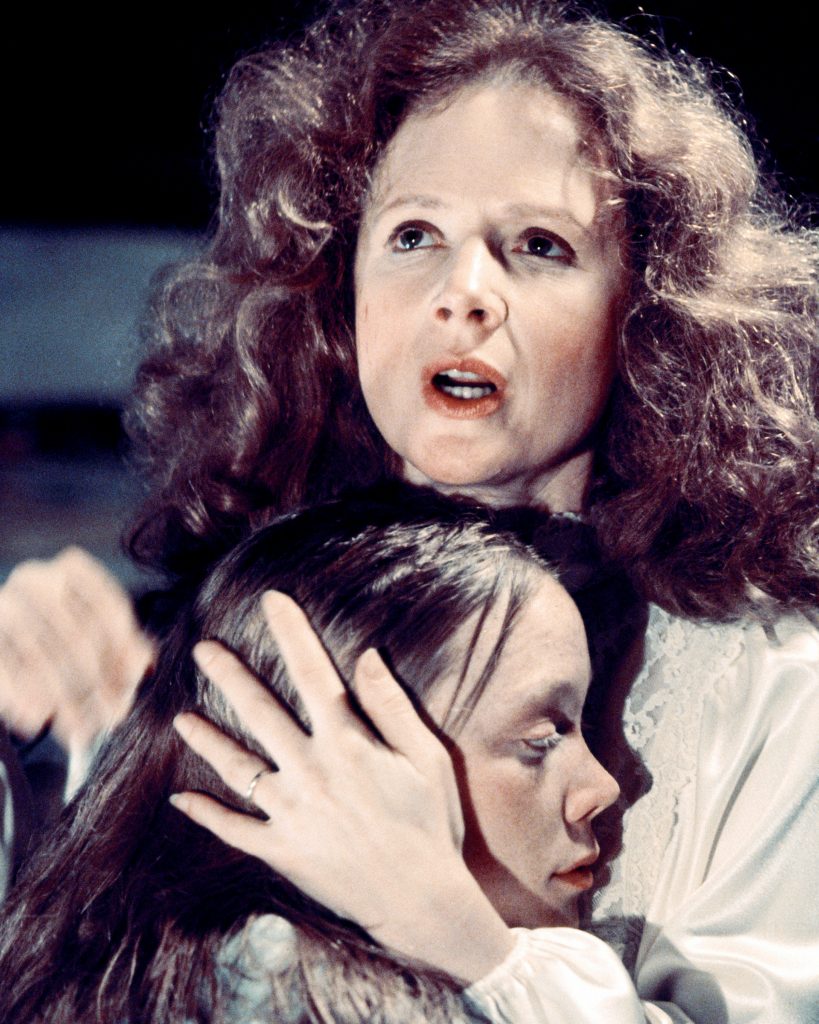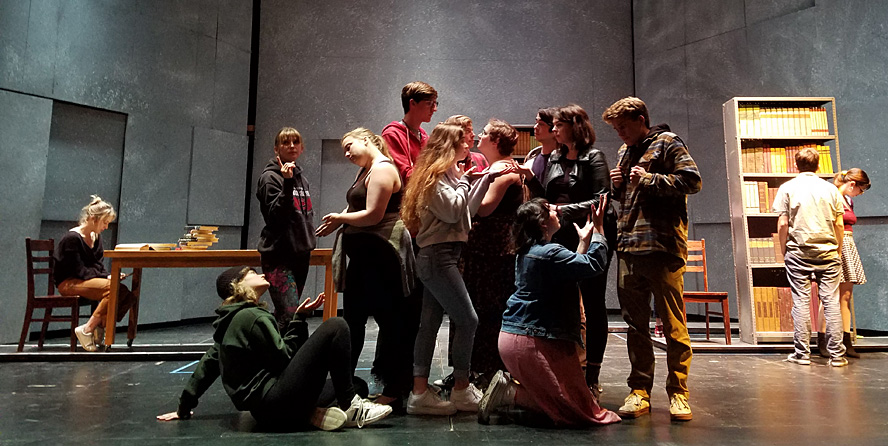Last updated on April 13, 2021
Carrie, Stephen King’s classic horror story, is Cabrillo Theater Arts’ offering of a Halloween treat for 2019—reimagined in a musical as performed Off-Broadway in 2012.
Director Kathryn Adkins describes the story as one of “bullying, isolation, loneliness and the consequences of that experience”—the consequences being a horrific wave of supernatural powers unleashed upon a group of Carrie’s tormenting peers.
The Voice interview with director Adkins revealed layers of meaning and terrifying lessons that might go unrecognized by those who remember only the shocks and special effects of the movie, first filmed in 1976.
Carrie was, and is, special—as a character and as the center of a cautionary tale—as Adkins and the cast of Carrie are eager to explain.
Kathryn Adkins: The Voice Interview
Why is the story of Carrie so important, so current, for today’s audiences?
In 1974, when Steven King wrote his novel, Carrie, no one had imagined mass shootings and school Active Shooter Drills. The question I came away with after reading the script was, If Carrie was a male who was bullied, became psychotic and wanted retaliation, would she be the model of today’s mass shooter? Studies are being done currently that suggest the answer is yes. They create the same destruction.
In 1974, when Steven King wrote his novel, Carrie, no one had imagined mass shootings and school Active Shooter Drills. The question I came away with after reading the script was, If Carrie was a male who was bullied, became psychotic and wanted retaliation, would she be the model of today’s mass shooter? Studies are being done currently that suggest the answer is yes. They create the same destruction.
Throughout the 1960s and into the 1980s the US military was still exploring telekinesis as a weapon to block foreign intelligence spying. In addition, the early 1970s was the height of the Women’s Liberation movement and women were taking to the streets to assert their power.
Steven King saw Carrie as the emerging female and gave her the telekinetic weapon.
All of those past cultural fears and unrest are present today. Each time I hear about another mass shooting, I get angry and frustrated that more isn’t being done to stop this craziness. It rests on all of us to find solutions and that is what the last message of the musical tells the audience, “Once you have seen, you can’t unsee.”
What is the tone you are all working to capture in the telling of the story?
The tone of the musical is dark. The majority of the audience will know the story from the film. I want to keep that feeling of foreboding and the thrill of the unexpected. This is a psychological horror show.
Was there a particularly enthusiastic response to the call for auditions?
We had an amazing response to auditions with the largest turnout in some time, especially from young women. I’ve had the pleasure of casting amazing talent for this show. The timing is right and students are more than ready to have their story told.
Are the leads familiar with the novel, or either of the film versions of Carrie?
Yes, although it is important that they create their own characters. Actors must bring elements of themselves to the creative process and that is what makes each performance different.

Are there lessons to be learned from the original, big-budget production of Carrie: the Musical?
Absolutely. The Broadway experience of the 1980s was one of extravaganza. Full helicopters were being crashed on the stage in Miss Saigon, Andrew L. Webber was rowing boats in the fog in The Phantom of the Opera. Everything was over-produced. The 1988 stage version of Carrie, the musical fell victim to that scale of production.
The 2012 version we are producing strips away the excess. We will have telekinetic magic on stage, but it will be used judiciously. (The final Prom scene is going to be amazing.) In the theater, we say, “Less is more.” It works much more effectively.
What are you all most excited about the audience experiencing in the show?
Speaking for myself, I know the audience is going to be taken on an emotional rollercoaster ride.
We are including the audience in the party/Prom scenes by bringing the action out into the auditorium. They can dance and sing and have a good time right up to the end. Carrie, the musical is the perfect theatrical combination of cultural significance and Halloween thriller.


